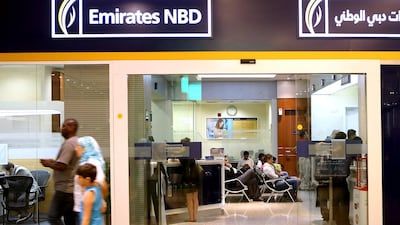A consortium of six banks and licensing authorities in the UAE, that was formed this month to share verified data about customers using blockchain technology, is credit positive for lenders in the country, according Moody’s Investors Service.
“We expect the KYC [known your customer] blockchain consortium to support the asset quality of UAE banks primarily by reducing operational risk,” the ratings agency said. “The platform will facilitate faster and more secure on-boarding, and exchange of authenticated and validated digital customer data and documents through distributed technologies powered by blockchain. This will ensure improved compliance with local and international KYC regulations while reducing the risk of data theft.”
The six banks in the consortium include Emirates NBD, Emirates Islamic (the Sharia-compliant subsidiary of Emirates NBD), HSBC Bank Middle East, The National Bank of Ras Al Khaimah, Abu Dhabi Commercial Bank and Commercial Bank of Dubai. The banks together hold nearly 44 per cent of total banking assets in the UAE as of June 2019, according to Moody's.
The blockchain platform will boost compliance and the regulatory framework of lenders as non-compliance with KYC regulations, particularly for anti-money laundering and terrorist financing, can have material legal implications and result in sizeable penalties for banks, Moody's said.
The US Treasury Department has fined a number of British and European banks for violating such regulations. Theft of client data is another factor the platform can provide protection from and help lenders avoid material reputational damage.
“The platform will support regulatory oversight of banks’ collection and management of KYC data. We also expect it to help credit risk management with better data for client underwriting and debt collection,” Moody’s said.
The consortium will support the franchises and profitability of UAE banks by improving customer service through shorter turnaround times for customer on-boarding, including opening a bank account, according to the report.
The platform will also reduce the financial cost for banks of managing paper-based KYC data of registered companies.
“We expect other UAE-based financial institutions and licensing authorities to gradually join the platform, which has the potential to become an important component of the country’s digital ecosystem.”
The consortium has partnered with Norbloc, a blockchain platform and applications provider. The Smart Dubai Department, in collaboration with the Central Bank of the UAE, will oversee and regulate the consortium's operations.
The KYC platform is expected to be rolled out in the first quarter of this year.


